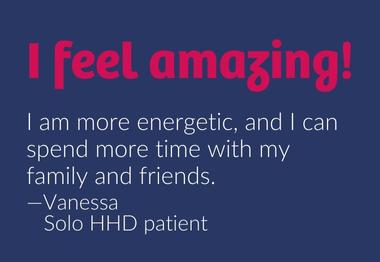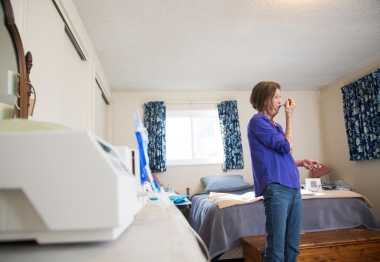Accelerating Transformations in Kidney Care
The kidneys are small organs that have had a big impact on health care. Thirty seven million people in the U.S. have some form of chronic kidney disease (CKD), ranging from early (stage 1) to end stage (stage 5). While individuals living with end stage kidney disease represent only 1% of Medicare beneficiaries, they account for 7.2% of Medicare medical costs. Most of these individuals will also spend approximately 11 days in the hospital each year.1
In recent years, the kidney care community has coalesced to accelerate transformations in delaying CKD progression, dialysis therapy and kidney transplantation.
Managing CKD Progression
CKD is often referred to as a silent disease because the associated signs and symptoms are so vague. Patient, clinician and caregiver education programs are being developed and enhanced to build more awareness of CKD risk and help improve disease management. In addition to education, better screening measures for early detection of kidney failure would also help lead to more optimal outcomes.
Two-thirds of people with CKD also suffer from comorbidities such as diabetes, hypertension and cardiovascular disease. If those comorbidities can be effectively managed, the likelihood of CKD progression decreases. There is promising research indicating that new medications for diabetes may also help slow or stop the progression of CKD as well as reduce cardiovascular risks, mortality and the need for dialysis.
Integrated Kidney Care
Shifting from fee-for-service to value-based care payment models will drive further innovation, helps improve quality and can lead to greater cost savings in kidney care. Integrated programs place patients at the center of care where they can guide their treatment in partnership with their care team.
Leveraging Technology to Improve Patient Outcomes
Artificial intelligence and predictive analytics are being scaled to segment patients into several different areas, including risk for CKD progression and eventual need for dialysis. These models are used to develop effective and efficient integrated care delivery systems. Incorporating this technology into care delivery will be essential to helping reduce CKD rates and slow disease progression.
Home Dialysis
COVID-19 has sped up transitions to home dialysis that were already occurring at record rates. There is an intentional focus across kidney care to increase the number of patients selecting peritoneal or home hemodialysis therapies. Home dialysis is frequently associated with better outcomes, improved quality of life and reduced risk of hospitalization.
Innovative technologies such as home remote monitoring, telehealth and other new devices are helping patients continue to treat on their home dialysis modality of choice.
Renewed Focus on Kidney Transplantation
Policy and systems changes are working to make kidney transplantation easier – easier for patients to find a kidney donor, easier for living donors to give the gift of life and easier for dialysis providers and nephrologists to coordinate with transplant centers. At the same time, advancements in transplantation ranging from paired and chain donations to new types of organs and implantable devices will transform kidney health.
To support successful long-term outcomes post-transplant, researchers are also exploring solutions to potentially eliminate immunosuppression complications, including STEM cell infusions or modified immune cell infusions.
1. Source: United States Renal Data System. 2018 USRDS annual data report: Epidemiology of kidney disease in the United States. National Institutes of Health, National Institute of Diabetes and Digestive and Kidney Diseases, Bethesda, MD, 2018.









